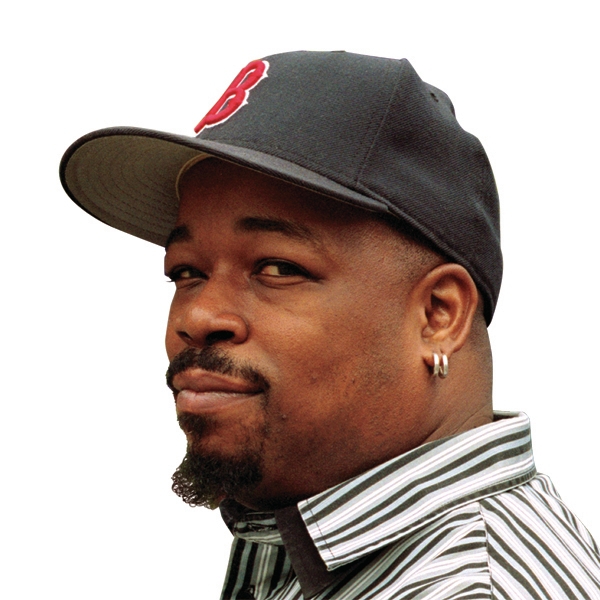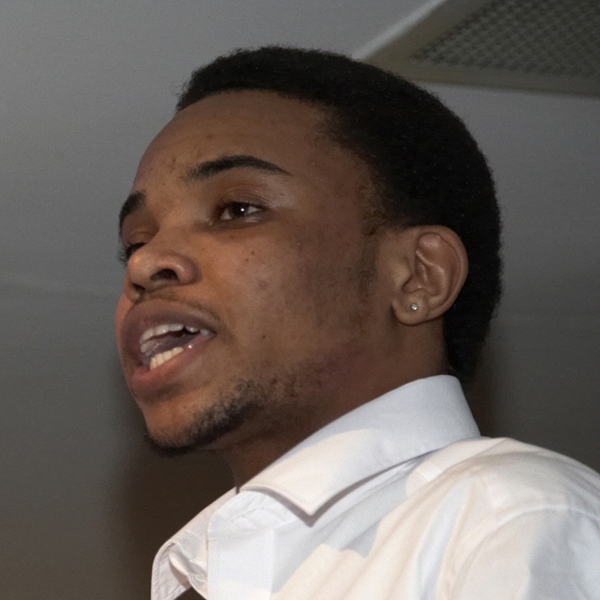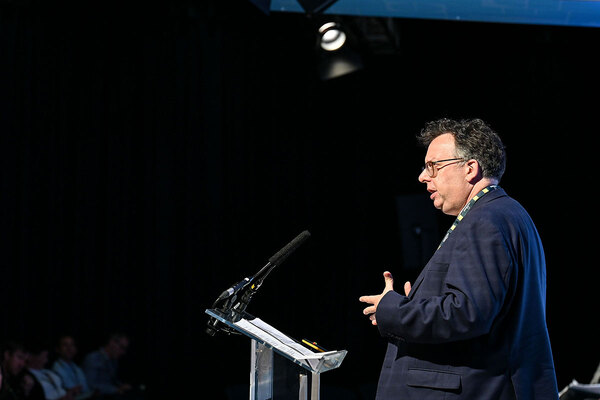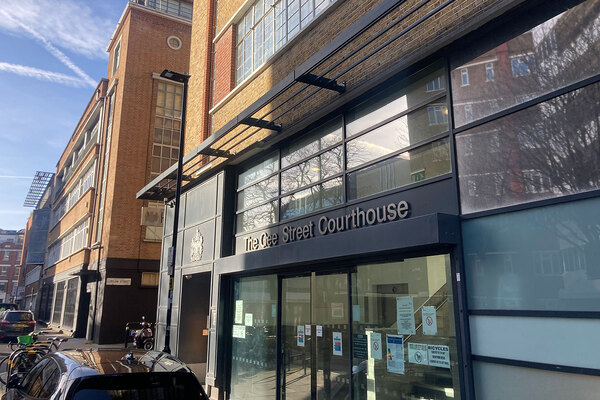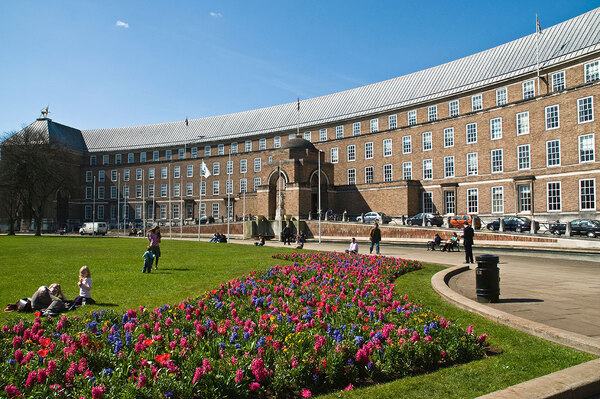Meet the board
The housing sector has an important role to play in preventing a repeat of this summer’s riots. Here, Lydia Stockdale gathers together a panel of experts to help shape the sector’s response

After riots swept through some of England’s major cities in August, Inside Housing, the Chartered Institute of Housing and the National Housing Federation launched a study to find out what steps can be taken to help prevent a repeat of the violence.
The outcome of the study will be published as The Riot Report and handed to the government before Christmas.
Today we launch The Riot Report sounding board, 11 people whose expertise will give the clearest possible picture of why the rioting and looting took place, and what needs to be done to help prevent it happening again.
The board includes representatives from housing’s front line, the police, social work, community and youth work, and an award-winning young resident.
They will ‘sense-test’ the draft of The Riot Report, feeding in comments and suggestions before the final version is handed to government ministers, with the aim of influencing policy.
The board
Carla Keegans - Head of involvement and policy development, City of London

In June Carla Keegans won Inside Housing and the Chartered Institute of Housing’s Rising Stars competition to find the future leaders of the housing sector. She says that the disturbances in August have made her question what the role of the housing sector should be.
‘I hope The Riot Report can help to achieve some fundamental change to the socio-economic conditions that negatively impact upon thousands of our residents and many more people living outside social housing.’
‘Over the past decade or so many social landlords have embarked upon a diverse range of initiatives to tackle unemployment and build community cohesion. As a sector we have shown ourselves to be proactive and rooted in meeting the needs of the communities we operate in.
owever, this approach has seemingly attracted a general acceptance that housing organisations are somehow responsible for these issues and should provide services increasingly as part of mainstream services.
‘When did it become part of a landlord’s job to tackle unemployment? While we should be commended for responding to the needs of our residents and communities, our contribution to this national problem is not properly recognised or valued. I hope that The Riot Report will help change this.’
Jo Burrill - Regeneration project officer, Midland Heart

A front line housing professional who works in Handsworth and Lozells in Birmingham, Jo Burrill says that when the disturbances spread to Birmingham, they focused on the city centre and some of the surrounding business areas.
‘There were previous disturbances in Lozells, in 2005, where lack of community cohesion was a factor. It didn’t feel like the same things triggered the disturbances in August. They weren’t a neighbourhood thing.’
‘I think people [in Birmingham] saw the riots and looting taking place in London the night before and got a feel for them. There are people with criminal tendencies who take opportunities when they arise, and then there were others who were brought into it.
‘The reasons [behind the riots] are complex. It’s important to remember that we do have great neighbourhoods that work, but there are some people who feel complete alienation: young people - and the not so young - who don’t feel opportunities are open or accessible to them.
‘Midland Heart is working with local police, community and faith groups, families and individuals on projects that bring real opportunities and benefits. I think this is all part of a jigsaw that will work towards a solution.’
Twilight Bey - Youth engagement team leader at Kensington Housing Trust, part of Catalyst Housing Group

Seventeen years ago Twilight Bey was flown in from America by a south London community group to keep Los Angeles-style gangs off London’s streets. He has built on his own experiences growing up in South Central LA, notorious for its gang activities, to develop youth engagement projects. These included Pathways 2 Progress, a programme developed by Mr Bey to offer tailored support to young people at risk of committing crime and anti-social behaviour, and those known to the police.
A decade later Kensington Housing Trust, part of Catalyst Housing Group, employed him to run its youth engagement team and put his P2P programme into action.
‘Outrage over the shooting of Mark Duggan sparked the riots [in Tottenham, north London], but it just spread. There were people who felt anger and frustration, and those who were opportunistic - they took the chance to get their hands on something.
‘People got caught up in it and seeing the police standing by not doing anything affected their minds.
‘Young people are saying they haven’t got anything and this was a chance and take something.
‘They say that nobody seems to understand that they can’t afford school fees, there is no affordable housing and there are no jobs.’
Emma Harrison - Founder of Action for Employment

Emma Harrison, founder of Sheffield-based training firm Action 4 Employment, has more than 20 years’ experience in the welfare to work sector. At the end of 2010 she was tasked by prime minister David Cameron to help 120‚000 long-term unemployed families gain work over a five-year period through her programme, Working Families Everywhere.
Ms Harrison, is currently working with Hull, Westminster and Blackpool councils to help unemployed people into work.
‘The riots were a product of many social issues rather than just one catalyst or reason. With this in mind, we must remember that there is not just one simple solution to tackle the problems many local communities face.
‘What is clear, however, is that every agency, volunteer group, local authority or individual involved in this process must work towards one unified goal. My viewpoint has always been that work is the answer for many of the social and economic issues we see on Britain’s streets.
‘Working Families Everywhere’s aim is to work with existing agencies involved with helping these families but to make sure that everyone is moving towards the one goal of helping these families into work - I look forward to being part of The Riot Report.’
Working Families Everywhere is a pilot programme spearheaded by Emma Harrison on a voluntary basis and is separate from her work at A4e.
Gaynor Duffy - Magistrate and food technology teacher at the New Charter Academy in Ashton-under-Lyne, Greater Manchester

While completing a two-year postgraduate certificate in education in design and technology at Manchester Metropolitan University, Gaynor Duffy was appointed as a magistrate at Tameside Magistrates’ Court. Having graduated in 2008, Ms Duffy is now also a teacher at the New Charter Academy, sponsored by housing association New Charter Housing Trust Group.
Over the past two years, she has been completing her masters degree, which focuses on the working class children she teaches in Greater Manchester. She says this has been influential in forming her opinions on the riots.
‘I believe the factors [that led to the disturbances] are multifaceted and include the decline in industry, the change from a collective responsibility for community to more individualistic priorities. Furthermore, in today’s interconnecting world, geographical boundaries are blurred as the internet, television and the media impact on our community and values.
‘I believe these factors are influencing our youth to think that happiness and self-worth is of a materialistic nature. We saw this potent mix of factors played out in the looting and rioting in August.’
Julie Fawcett - Housing association tenant and director of Stockwell Park Community Trust

Inside Housing columnist Julie Fawcett set up the tenant management organisation which took over the Stockwell Park estate, in south London, from Lambeth Council after the 1981 Brixton riots. She is now a director of the Stockwell Park Community Trust and runs its youth centre.
‘It was obvious something was going to happen. We had no idea it was going to kick off when it did but we all agreed that frustrations were rising.
‘Angry, disappointed, disaffected people of all ages had had enough. No excuses for individual bad behaviour, but the establishment sure has changed its tune over the past 30 years. The Scarman Report, published after the Brixton riots, all but excused everyone bar the police - three decades down the line, and with the Olympic Games on the way, any signs of unruliness were punished with the vengefulness of comic strip hero Judge Dredd stomping about his business.
‘The message is clear - the rule of law will be obeyed. We need to hear that the law still stands for freedom and not repression.’
Daniel Morris - Youth worker, founder of Urban Sport Life and director of Leaders Reflect Solutions

Daniel Morris has worked with young people in Lambeth, south London, for eight years. He is the founder of Urban Sport Life, a social enterprise that uses sport to promote healthier lifestyles among young people, through which he works with organisations including Clapham Park Homes, part of Metropolitan Housing Partnership.
He is also director of Leaders Reflect Solutions, which encourages entrepreneurship in communities.
Mr Morris says that in Brixton, not far away from where he lives, ‘a minority of people’ used tragedy of Mark Duggan’s death on Thursday 4 August, ‘as an excuse to loot local businesses and wreak havoc’.
‘It boils down to the hype - that sense among a group of people that something big is happening,’ he adds.
‘What possesses people to engage in such criminal activity, to loot, to engage in violence? What is it about their circumstances that fail to inspire them to choose a different course? We should seek answers, but in no way excuse theft and violence.’
Derekston James - Campaigns manager for the national UK Youth Parliament

In 2010 Derekston James, 19, helped develop a youth strategy for his landlord, Homes for Haringey.
This year he won the National Federation of ALMOs Most Outstanding Young Person Award.
‘I felt the riots started because of the way the police handled the Duggan family after the shooting of Mark. The lack of communication from the police reverberated around Tottenham and Haringey.
There are a lot of underlying issues that gave the riots momentum but got overshadowed in the days after.
‘The breakdown in relationship between the police and young people was clearly evident. Young people feel the police are against them. For example, they are very heavy-handed during stop-and-searches.’
Cindy Butts - Member of the Metropolitan Police Authority and its Operation Trident Independent Advisory Group

Cindy Butts has been a member of the Metropolitan Police Authority, the organisation that scrutinises and supports the work of London’s Metropolitan Police Service, since 2000. She leads on diversity and community engagement.
‘Before the riots I expressed my frustrations about the dangers of the [police] becoming complacent in the way it engages with some of London’s communities and in so doing losing the important lessons of the past.’
‘The riots have been a painful and strong message that the police, and indeed society as a whole, cannot afford to disengage with those who feel (for whatever reason) that they have no stake in society. Now is the time to carefully reflect upon the tragic events that we witnessed in August.’
Brendan Nevin - Partner at housing and regeneration consultants Nevin Leather Associates

Brendan Nevin has worked in housing since 1985 as a practitioner, academic and consultant.
‘England has a history of urban disturbances which arise when youth unemployment is high. This has been a backdrop to riots since the mid-1970s.
‘The disturbances in Tottenham also appear to have been related to a breakdown of relationships between the police and some sections of the community, another common theme over the past 30 years.
‘The more widespread rioting in London, Birmingham and Manchester was, however, different in its nature and scale. The focus of rioters here appears to have been targeted at property and, in many cases, opportunistic looting. In reality there may have been different groups involved in this, with different grievances and agendas.
‘There was an added dimension to the Birmingham disturbances which is an underlying tension between ethnic groups.’
Ruth Cartwright - Manager of the British Association of Social Workers, England

Ruth Cartwright’s social work career has included child protection, mental health, and managing a hospital social work team. She is now a manager of the 14,000-member British Association of Social Workers, the UK professional association for social workers.
‘Many of the people taking part [in the riots] seemed to feel they had nothing to lose and felt alienated from the rest of society. The reasons behind the riots were complicated, but I believe it is significant that we have become a more unequal society over the past 20 years. Poverty is now increasing again in combination with cuts to public services.
‘Some of the punishments meted out to rioters seemed draconian and it is to be regretted that those who question them or who seek to find explanations are deemed somehow to be condoning the trouble.
‘Examining the reasons behind the riots could, in fact, lead to solutions to some of the problems behind the unrest. This is not a time for knee-jerk reactions.’




